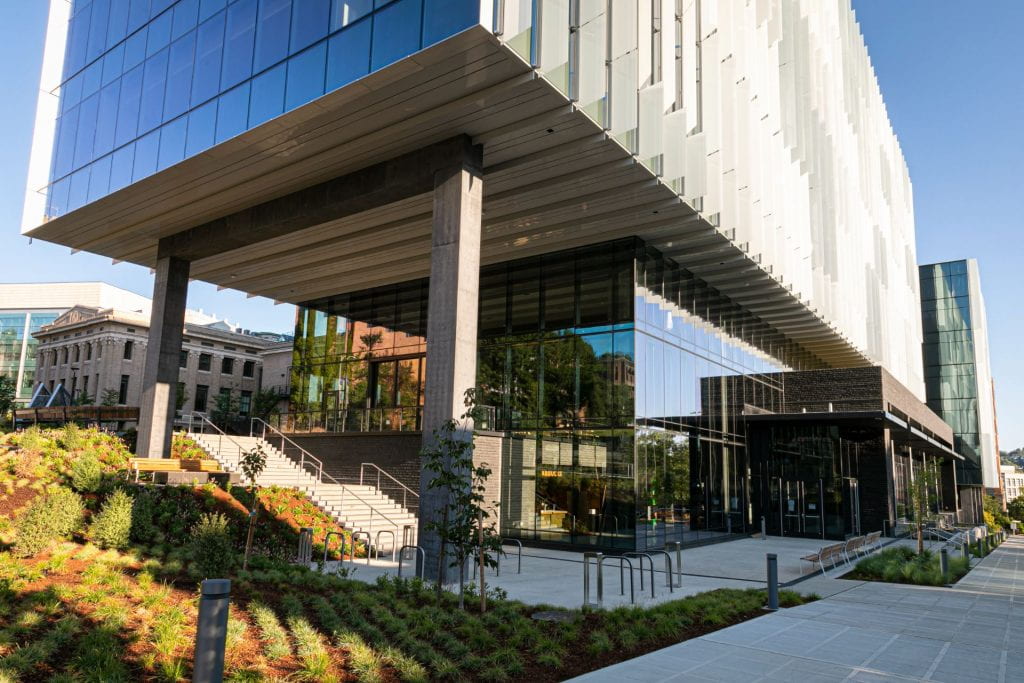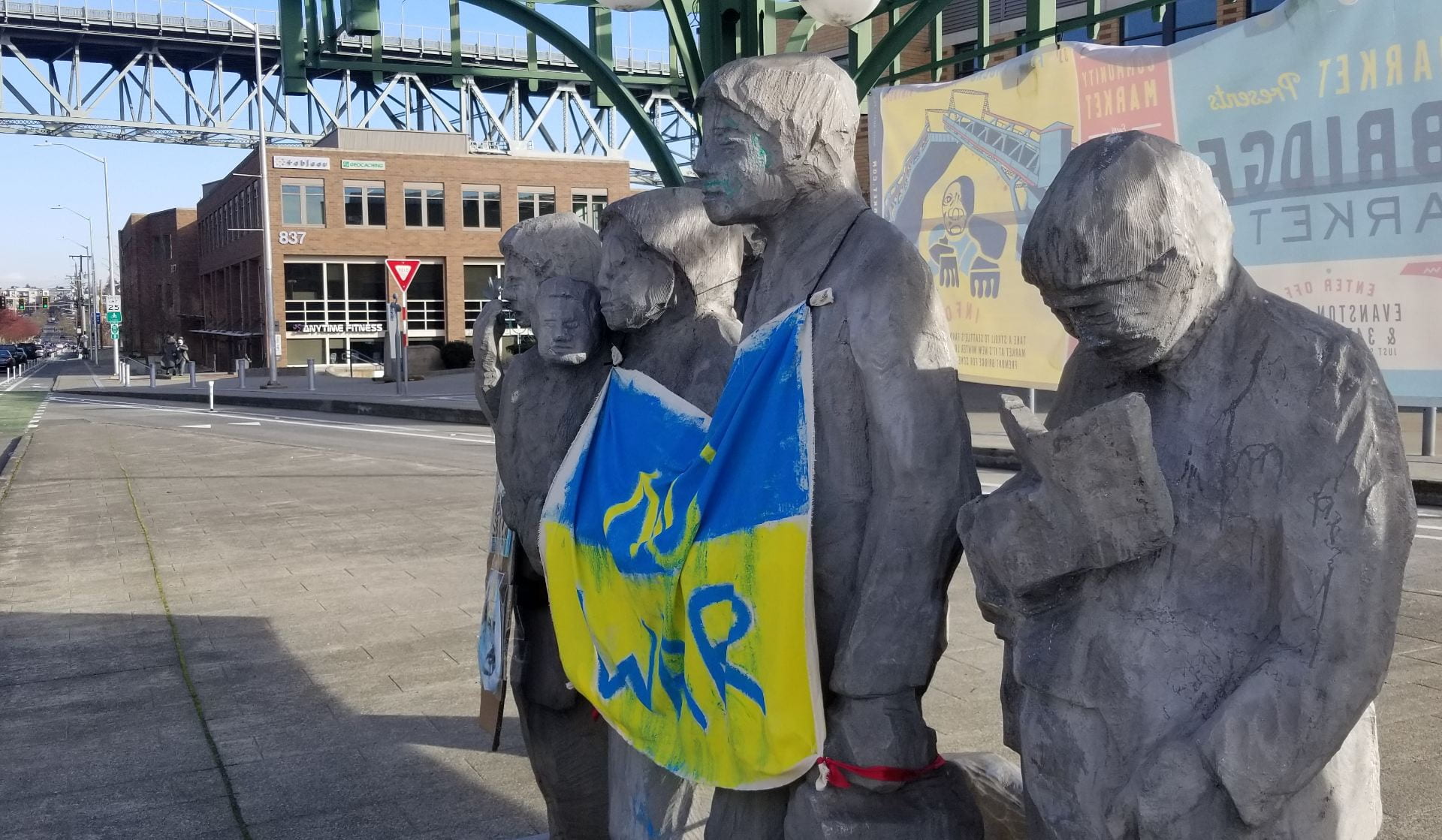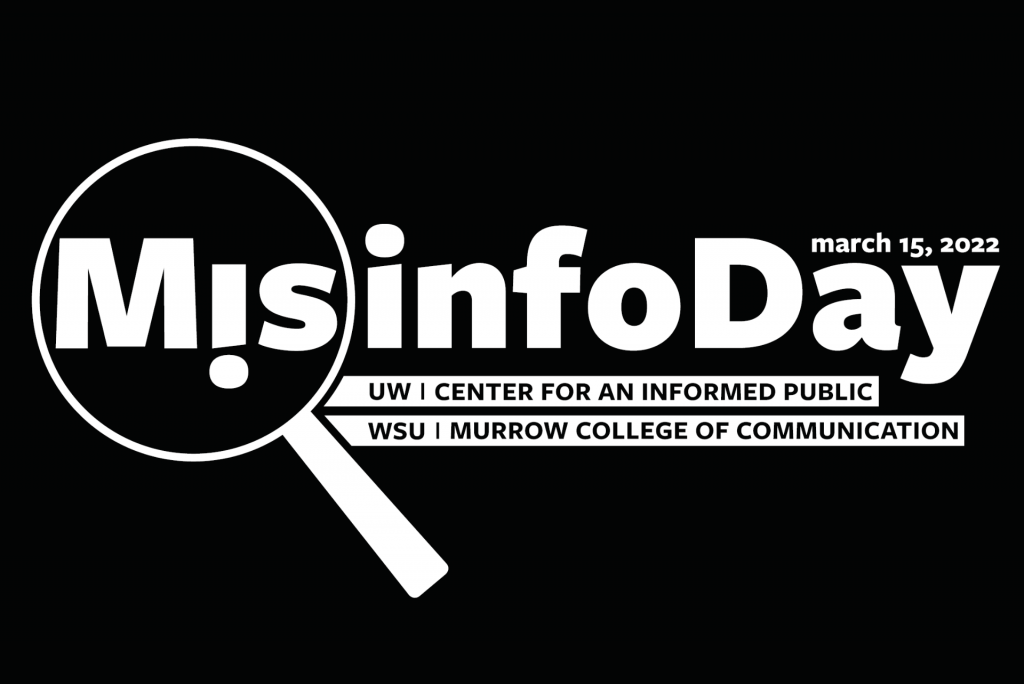This is the web version of the April 2022 edition of the Center for an Informed Public‘s News & Insights newsletter that was originally sent out on April 14, 2022. Check out our newsletter archives. Not signed up to receive the CIP’s newsletter? Sign up here.
CIP researchers help bring clarity to ‘fog of war’ from Russia’s invasion of Ukraine
As Russia’s war in Ukraine continues, researchers at the Center for an Informed Public have been actively monitoring and collecting data to better understand how certain social media narratives about the conflict have taken shape and spread online. While research into and analysis of Ukraine-related online narratives will continue for months to come, experts from the CIP have helped research peers, journalists and the public at large make sense of the ways a deadly, distressing and traumatic armed conflict is unfolding in our content feeds.
AWARDS: We’re seeking nominations for the CIP Award for Impact & Excellence.
PEOPLE: Yuan Hsiao, Katy Pearce join CIP as new faculty members.
SPOTLIGHT
Key lessons and highlights from MisinfoDay 2022
More than 1,300 students from more than 70 schools across Washington state and beyond participated in recent MisinfoDay 2022 educational activities planned and co-presented by the University of Washington’s Center for an Informed Public and Washington State University’s Edward R. Murrow College of Communication through an ongoing statewide educational and research partnership. The 2022 program, hosted on March 15, included an “escape room” game teams of students played that incorporated key concepts and lessons about misinformation, along with eight pre-recorded video workshops facilitated by experts from the CIP, WSU Murrow, UW Bothell and Northwest Public Broadcasting that teachers used in classroom activities and can continue to use as educational resources.
- MISINFODAY 2022 | Key lessons, highlights, video workshops and resources
- READ MORE in The Seattle Times | “Professors host day to teach WA students to combat misinformation“
- LISTEN | KUOW Public Radio’s Kim Malcolm interviews CIP postdoctoral fellow Madeline Jalbert about why misinformation is “sticky”
***
Naomi Miyashita, policy planning team leader for UN Peace Operations, joins CIP as 1st community fellow
Naomi Miyashita, the policy planning team leader for United Nations Peace Operations, has joined the CIP as our first community fellow. Miyashita, currently on sabbatical, is researching social media-enabled influence operations in the Central African Republic and Mali.
RESEARCH NOTES 
UW Population Health Initiative awards Tier 1 pilot research grants to 2 CIP-affiliated projects
UW’s Population Health Initiative announced its winter quarter 2022 Tier 1 pilot research grants, which includes funding for two projects affiliated with researchers from the Center for an Informed Public. In all, the Population Health Initiative announced 11 awards that totalled nearly $480,000, which included approximately $270,000 in funding from the initiative plus additional school, college and departmental matching funds. Tier 1 pilot funding is designed for project teams to lay an interdisciplinary foundation for a future project to generate proof-of-concept.
***
In a commentary published in the Harvard Kennedy School Misinformation Review, “Studying mis- and disinformation in Asian diasporic communities: The need for critical transnational research beyond Anglocentrism,” CIP researcher and an UW iSchool doctoral student Sarah Nguyễn, UNC Center for Internet, Technology and Public Life postdoctoral researcher Rachel Kuo, UNC Hussman School of Journalism & Media doctoral student Madhavi Reddi, UNC Library and Information Science doctoral student Lan Li; and CIP postdoctoral fellow Rachel E. Moran draw upon case studies from Vietnam, Taiwan, China, and India and explore key concepts driven by methodological approaches to better study diasporic information networks beyond the dominance of Anglocentrism in existing mis- and disinformation studies. Research on misinformation in diasporic Vietnamese communities, led by Moran and Nguyễn, was funded by the CIP and The George Washington University’s Institute for Data, Democracy, & Politics.
***
In an article in the March 2022 edition of Scientific American, CIP postdoctoral fellow Joe Bak-Coleman and CIP faculty member Carl T. Bergstrom write about how the urgency of the COVID-19 pandemic prompted scientists to adapt to rapid communication and research collaboration. While Bak-Coleman, who studies how communications technology affects collective decision-making, and Bergstrom, a UW Department of Biology professor who studies how evolution encodes information within genomes and how institutions and behavioral norms influence scientific communication, note that this all-hands-on-deck response brought great scientific achievements — like the early genomic sequencing work that opened the door to COVID-19 vaccines — they write that “rapid and unorthodox channels of communication also could not solve all the problems scientists encountered.”
***
Among papers being presented at the upcoming ACM CHI Conference on Human Factors in Computing Systems April 30-May 5 is “Bridging contextual and methodological gaps on the ‘misinformation beat’: Insights from journalist-researcher collaborations at speed,” co-authored by a CIP-led team of researchers, UW Human Centered Design & Engineering doctoral student Melinda McClure Haughey, UW Department of Communication journalism and public interest communication student Martina Povolo, and CIP cofounder and HCDE associate professor Kate Starbird. In the paper, they discuss how journalists work with researchers to report on online misinformation. Through an ethnographic study of thirty collaborations, including participant-observation and interviews with journalists and researchers, they identify five types of collaborations and describe what motivates journalists to reach out to researchers — from a lack of access to data to support for understanding misinformation context.
***
Other recent publications featuring CIP-affiliated researchers (in bold) include:
- Kolina Koltai, Rachel E. Moran, and Izzi Grasso. “Addressing the root of vaccine hesitancy during the COVID-19 pandemic.” XRDS: Crossroads, The ACM Magazine for Students. (2022)
- Katy E. Pearce and Pranav Malhotra. “Inaccuracies and Izzat: Channel Affordances for the Consideration of Face in Misinformation Correction.” Journal of Computer-Mediated Communication. (2022)
- Rachel E. Moran and Efrat Nechushtai. “Before reception: Trust in the news as infrastructure.” Journalism. (2022)
- Nicole Buckley and Joseph S. Schafer. “Censorship-free platforms: Evaluating content moderation policies and practices of alternative social media,” For(e)dialogue. (2022)
***
The National Science Foundation has awarded Graduate Research Fellowships to two CIP-affiliated student researchers, UW Information School doctoral student Kayla Duskin and undergraduate research assistant Joey Schafer, who will be continuing his studies at UW and at the CIP as a doctoral student in the Department of Human Centered Design & Engineering. NSF’s GRFP, awarded to an elite group of fellows who have gone on to distinguished careers in STEM or STEM education, provides three years of financial support, comprising a $34,000 stipend for each fellowship year.
CIP IN THE NEWS
Contributions of CIP students to misinformation research featured in CNET
A recent CNET feature on graduate and doctoral students engaged in mis- and disinformation research, “The unsung force digging through misinformation,” features interviews with two CIP-affiliated student researchers, iSchool MLIS student Taylor Agajanian and iSchool doctoral student Sarah Nguyễn, who are contributing to work that “helps media outlets shine a light on the darker corners of social media, while policymakers use it to understand its impact, including how it motivated events such as the Jan. 6 riot.”





